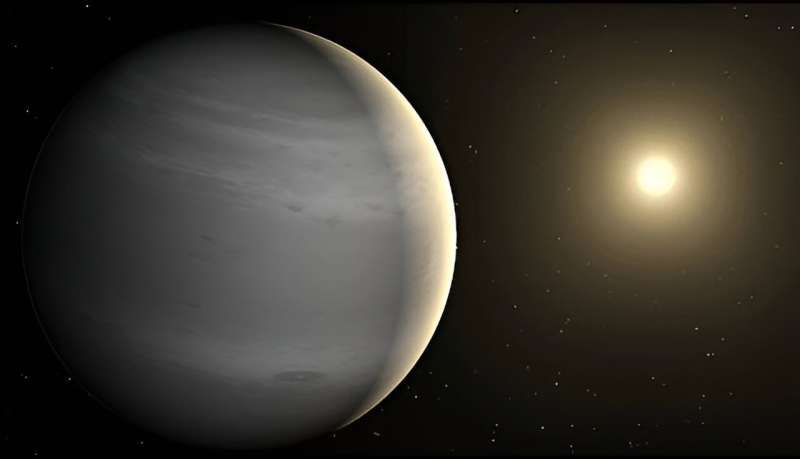
WASP-77 System Analysts A b. Credit: NASA Exoplanet Catalog
The planet twists in front of its star, which reduces the starlight we see. Events like these, called transits, give us a lot of information about exoplanets—planets around stars other than the sun. But predicting when these special events will happen can be difficult…unless you have the help of volunteers.
Fortunately, a multi-team collaboration led by researcher Federico R. Noguer of Arizona State University and researchers at NASA’s Jet Propulsion Laboratory (JPL) and Goddard Space Flight Center (GSFC) ), took up the challenge. This collaboration has published the most accurate physical and orbital data to date for an important exoplanet named WASP-77 A b. These accurate parameters help predict future events and are essential for planning spacecraft observations and accurate space modeling.
The research was published in the journal Publications of the Astronomical Society of the Pacific.
“As a retired dentist and now a resident scientist for Exoplanet Watch, research opportunities like this give me a way to learn and contribute to this fascinating field of astronomy,” said Anthony. Norris, a citizen scientist working on the Exoplanet Watch project.
The study combined astronomical/citizen science data from the Exoplanet Watch and ExoClock projects, as well as the Exoplanet Transit List. It also included data from NASA’s Spitzer Space Telescope, the Hubble Space Telescope (HST), the James Webb Space Telescope (JWST), and the La Silla Observatory.
Exoplanet Watch invites volunteers to participate in exoplanet research, using their own telescopes to spot exoplanets or by analyzing data collected by others. A recent article details how the Exoplanet Watch team helped confirm a new exoplanet candidate.
WASP-77 A b is a gas giant exoplanet orbiting a sun-like star. It is only 20% larger than Jupiter. But that is where the similarities with our planetary system end. this ball of hot gas orbits close to its star—more than 200 times closer to its star than our own Jupiter.
Additional information:
Federico R. Noguer et al, Enhancing Exoplanet Ephemerides by Leveraging Professional and Citizen Science Data: A Test Case with WASP-77 A b, Publications of the Astronomical Society of the Pacific (2024). DOI: 10.1088/1538-3873/ad57f5
Want a piece of the action? Join the Exoplanet Watch project and help contribute to the latest exoplanet science. Anyone can participate–participation does not require citizenship.
Excerpt: Citizen science collaboration provides accurate data on exoplanet WASP-77 A b (2024, September 20) Retrieved September 21, 2024 from https://phys.org/news/2024- 09-citizen-science-collaboration-yields-precise.html
This document is subject to copyright. Except for any legitimate activity for the purpose of private study or research, no part may be reproduced without written permission. Content is provided for informational purposes only.
#Citizen #science #collaboration #accurate #data #exoplanet #WASP77